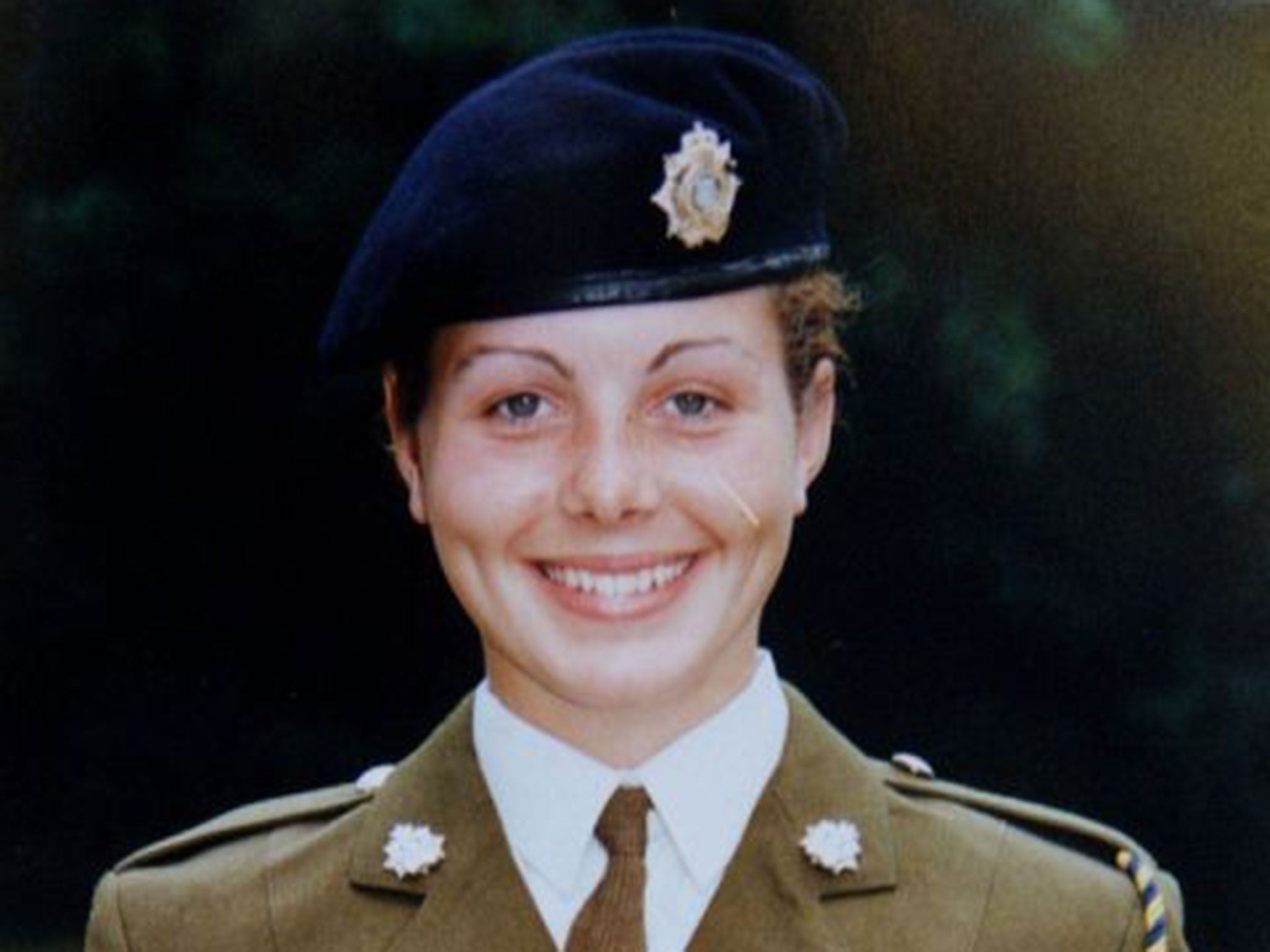High Court orders new inquest after 'flawed' inquiry into soldier's death at Deepcut barracks
Private James had been having initial training at Deepcut in 1995. She was described as 'happy' by witnesses before her sudden death

The High Court has ordered a new inquest into the death of a teenage soldier at scandal-hit Deepcut barracks 19 years ago – after a judge ruled the initial police inquiry was flawed.
Private Cheryl James was found dead from a gunshot wound to the head at the Surrey barracks, which had been at the centre of claims of bullying and abuse.
However, the original inquiry failed to examine the bullet that was fired, and other items of evidence were lost.
The original inquest lasted just an hour, key witnesses were not called and important evidence was not examined after an investigation that assumed the 18-year-old had killed herself, according to civil rights group Liberty, which is working on the case. Her rifle had not been forensically examined and no fingerprints were taken from it.
Lawyers for three other recruits who died at the barracks from 1995 and 2002 are also examining police documents that had been previously withheld from the families were handed over.
Private James had been having initial training at Deepcut in 1995 and was described as “bubbly” and “happy” by witnesses before her sudden death. Following her death, a report by BBC’s Panorama quoted a colleague saying she was the target of unwanted sexual advances by a senior soldier who “made her life hell”.
Her parents, Des and Doreen James, welcomed the court’s decision but said that the new inquest was almost 20 years too late.
“When young people die in violent circumstances, a rigorous and transparent investigation should be automatic,” they said in a statement. “Something went dreadfully wrong at Deepcut yet until now no one has bothered to look at how and why our daughter died. We can only hope that Cheryl’s legacy helps change the current ineffective and discredited military justice system.”
The inquest verdict of Private James was the first to be challenged by relatives, but other families are expected to seek their cases to be quashed. Sean Benton died a few months before Private James, while Geoff Gray and James Collinson died in 2001 and 2002.
Private James, a new recruit with the Royal Logistical Corps, had been posted alone in battledress and armed with an SA80 rifle to a gate at the Princess Royal Barracks when she was found dead.
She was found close by in a small wooded area. She was said to have been fit, healthy and enjoying life in the Army. Her death was initially handled by Surrey police but passed almost immediately to the special investigations branch of the Royal Military Police.
The first inquest was completed less than a month after she died. The Surrey coroner recorded an open verdict after saying he was not able to find that suicide was proved beyond reasonable doubt.
Judge Peter Thornton QC said that new evidence made “a fresh investigation including a fresh inquest necessary or desirable in the interests of justice”.
He said that the new inquest could be held outside of Surrey if a new coroner found that it was inappropriate given the previous role of the county’s police force in the flawed previous inquiry.
The family’s application for a fresh inquest was not opposed by the Surrey Coroner or the Ministry of Defence.
Liberty solicitor Emma Norton, who represented the soldier’s family, said: “Cheryl’s family refused to let her death be swept under the carpet but they’ve had to fight at every stage for answers in the face of a state that thought it could ignore the basic human rights of its troops.
“Cheryl deserved so much better – her family can now hope to finally get some answers.”